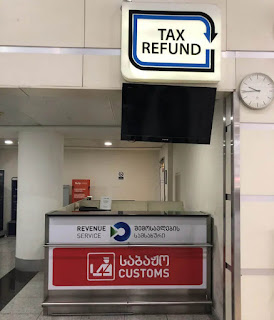Revisiting Laos, Thailand, And Malaysia In Southeast Asia
We found ourselves back in Southeast Asia (SEA) seeking refuge from the evils of the world after mugging in Panama City. The borders had just re-opened and we started from Malaysia where many things had changed since our previous visits in 2006, 2011, 2016, and 2017.
Some of the things we used to enjoy in Malaysia as well as in the whole of Southeast Asia were affordable travel and accommodation costs and great food. The prices are still low despite growing inflation and there is plenty of tasty spicy food available. However, this time we noticed that we have become sensitive to monosodium glutamate (MSG) or Ajinomoto as locals call it. The first few weeks went fine. We enjoyed several Indian restaurants in Kuala Lumpur and our favourite vegan buffet in Vientiane, Laos, but gradually we started to feel worse, always after eating, which we gathered was the fault of MSG. Another contributing factor was the ever-increasing air pollution, which has always been Asia's trademark. Now we felt it even more because of forest fires in North Thailand, a burning junk yard in Luang Prabang and much more cars than before. Air pollution reached levels that were twice higher than in Beijing, China.
From Kuala Lumpur, Malaysia to Vientiane, Laos By Train
We travelled through familiar routes. We took a train from Kuala Lumpur to Vientiane and stopped in Penang on the way to see old friends and stomping grounds. Crossing the border to Thailand was smooth as we received preferential treatment as wealthy white tourists. This was quite unusual. Locals and Malays were pushed aside, and our passports were stamped with a 45-day entry permit, no questions asked. Perhaps the pandemic had made Thais to appreciate tourists more than in the past. Long-distance trains were nice as always, and we treated ourselves to second-class sleepers instead of the third-class wooden benches we had used before. After a short stop at the new, empty, and megalomaniac Bangkok railway station of Bang Sue, we arrived at the Laos border to discover that corruption had finally reached the periphery, too.
Twelve years earlier, we walked over the Friendship Bridge to Laos, but this time we were forced to pay bribes in Thailand in the form of a useless bus ride over the bridge. The border guards collected their share of the loot just like at the border between Mongolia and China. On top of the bus fare, a Laotian border guard insisted on having a tip for stamping our passports, which we respectfully refused. Laos was no longer what it used to be. Even street dogs had become less friendly, and there were a lot more tourists than before, much more than in Thailand. A new train line to China might have contributed to that. All in all, Vientiane was no longer the welcoming, chilled, and laid-back city we remembered.
Prachuap Khiri Khan, Thailand and Langkawi, Malaysia
Thailand had fewer tourists and locals were friendlier than on our previous visits. Our monkey friends, on the other hand, had become as agitated as street dogs in Vientiane. We brought them a treat, but they decided to forcefully take the treasure bag from us before we had a chance to give it to them. After getting scammed by Prachuap Grand Hotel and booking.com, we didn't feel like staying around any longer and headed to Langkawi in Malaysia.
Langkawi is a popular destination because of its tax-free status. In 2018, however, Malaysia ceased to collect GST (value-added tax) and introduced a new tourism tax of 10 RM per night per room. Consequently, tourists no longer pay the GST but a tourist tax. Malaysia used to be an honest country but it is no longer such thanks to the new tax. Hotels across Malaysia scam visitors who have already paid their taxes through booking services to pay the tax again when checking in or out.
Our visit coincided with Ramadan. The island was eerily quiet which meant that accommodation had excellent value. Hotels offered spacious suites with private balconies on higher floors with beautiful seaviews. They also had gyms and swimming pools available for less than 25 euros per night, including all taxes. Food was scarce and unappetising due to Ramadan and the lack of customers. We mostly ate MSG-free noodles, raw vegetables and fruits in our hotel room.
Are Southeast Asian countries still worth visiting?
The answer is yes and no. We had considered Malaysia for long-stay earlier but the pandemic caused us to reconsider. Malaysia used to be an attractive destination for expats, with a significant community of non-citizens residing in the country using MM2H. The programme provided temporary residency in exchange for payments and a commitment to keep funds in a Malaysian bank account. However, due to the germophobic hysteria, expatriates were effectively deprived of their residential rights. Those who had acquired MM2H residency were not permitted to depart or re-enter Malaysia, and the fees and conditions became overburdening. Our acquaintances had lost confidence in the MM2H programme and were looking for other options.
Personally we will wait for the air pollution to subside before making any travel plans to the area. Moreover, when choosing any new or old destination in the future, we will always check the local air quality prognosis. In areas where chemicals like MSG or a lot of salt is used, we will rent apartments with kitchens to avoid excessive intake. Happy travels!










Comments